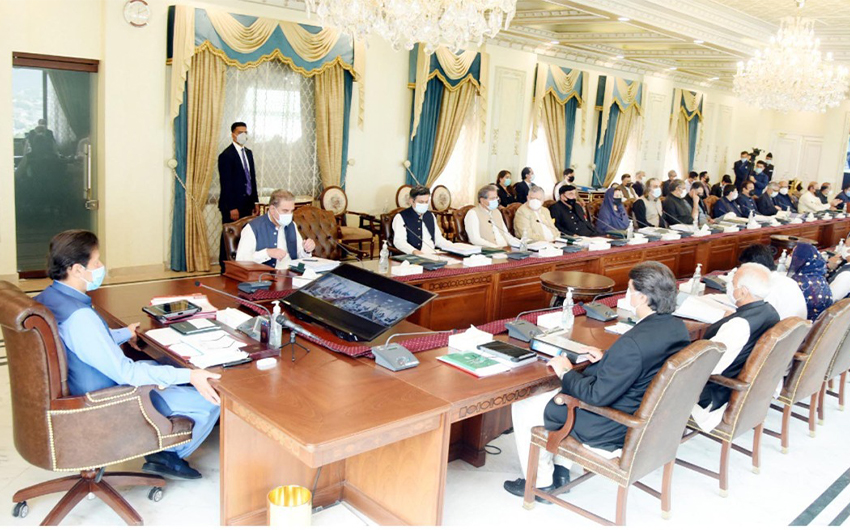ISLAMABAD: The Pakistani government said on Tuesday it would not be influenced by a resolution passed by the European parliament last week seeking withdrawal of the South Asian nation’s preferential trade status with the European Union under the GSP+ mechanism over its treatment of minorities and other issues.
The European Parliament called on the European External Action Service (EEAS) last week to “immediately review Pakistan’s eligibility for GSP+ status” in light of violence and discrimination against religious minorities, academics and civil society organizations.
Last month, nationwide violent protests erupted in Pakistan after a religious political party, the Tehreek-e-Labbaik Pakistan (TLP), demanded that the French ambassador to Pakistan be expelled over blasphemous cartoons printed in France last year. Six policemen were killed in the clashes with protesters and over 800 were injured, according to government figures.
The government first said it would ban TLP over the violence. But as protests continued and became deadlier, ministers negotiated with the party and eventually acquiesced to its demand to halt criminal cases against, and release, hundreds of TLP supporters arrested during the riots.
The government also called a parliamentary vote on expelling the French ambassador, meeting the religious group’s major demand.
“This [the EU resolution] is an opinion of a parliament and it is entitled to have its opinion,” minister for information and broadcasting, Chaudhry Fawad Hussain, said while briefing media about issues discussed in the federal cabinet meeting chaired by Prime Minister Imran Khan on Tuesday.

Pakistan's PM Imran Khan chairs cabinet meeting in Islamabad on May 4, 2021. (Photo courtesy: PID)
TLP has built a wide base of support in recent years, rallying around cases of blasphemy, which are punishable by death in Pakistan.
“The way a proscribed outfit [the TLP] tried to enforce the blasphemy law, the government is against it and the EU doesn’t need to express concerns over it,” Hussain said, adding the government had taken action against the group as a matter of internal policy.
“The behavior the banned group was against the Islamic teachings, constitution and law of the land,” he said, adding that Pakistan would not compromise on honor and dignity of the Prophet Muhammad [PBUH].
The minister said the cabinet had also approved the establishment of the Pak-Saudi Supreme Coordination Council, for which a memorandum of understanding was signed during the visit of Saudi Crown Prince Mohammed bin Salman to Pakistan in February 2019.
This council, he said, would be activated and would greatly help in the promotion of bilateral relations and cooperation, removing hurdles in the way of agreements signed during the crown prince’s visit.
The minister said Saudi Arabia had signed a memorandum of understanding with the Ministry of Climate Change to replicate Pakistan’s billion tree tsunami – an afforestation and reforestation project – which would help Pakistani laborers get jobs in the Kingdom.
















